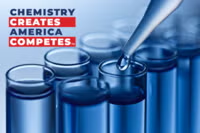The Department of Defense’s (DoD) recently released “Report on Critical Per- and Polyfluoroalkyl Substance (PFAS) Uses” documents the critical role PFAS chemistries serve in the defense of our nation. PFAS are a diverse universe of chemistries critical to a broad range of products, including renewable energy, electronics, healthcare technology, pharmaceuticals, and air and ground transportation. Recently, policymakers at the state and federal levels have considered or adopted measures to ban, severely restrict, or put other enormous regulatory burdens on this entire class of chemistry.
DoD’s report, mandated by Congress, examines PFAS use in multiple sectors, including kinetic capabilities, energy storage and batteries, and microelectronics and semiconductors. DoD warns of the sweeping impact to national security and our entire society if legislators and regulators take overly broad approaches to PFAS that limit or end their availability:
- “Congress and the Federal regulatory agencies should avoid taking a broad, purely ‘structural’ approach to restricting or banning PFAS. It is critical that future laws and regulations consider and balance the range of environmental and health risks associated with different individual PFAS, their essentiality to the U.S. economy and society, and the availability of viable alternatives.”
- “PFAS are critical to DoD mission success and readiness and to many national sectors of critical infrastructure, including information technology, critical manufacturing, health care, renewable energy, and transportation. DoD relies on an innovative, diverse U.S. industrial economy. Most... PFAS are critical to the national security of the United States.”
- “Currently, non-PFAS alternatives do not exist for most of these applications, and the likelihood of developing alternatives for these uses is estimated to range from moderate to almost impossible.”
- “PFAS are common chemicals used across DoD. Most weapons platforms incorporate PFAS, and PFAS are found throughout the defense industrial base in roles supporting mission critical component production and supply.”
- “DoD is reliant on the critically important chemical and physical properties of PFAS to provide required performance for the technologies and consumable items and articles which enable military readiness and sustainment. Losing access to PFAS due to overly broad regulations or severe market contractions would greatly impact national security and DoD’s ability to fulfill its mission, and impact domestic defense industrial base manufacturing and supply.”
- “DoD uses are represented in each major category of PFAS (i.e., perfluoroalkyl acids (PFAAs) and polyfluoroalkyl acids (polyFAAs)), PFAA precursors, and other PFAS (e.g., fluoropolymers, fluoroelastomers).”
- “If future PFAS legal and regulatory frameworks… seek to broadly restrict the use of PFAS based on chemical structure, there could be extensive economic, industrial competitiveness, and quality-of-life impacts to U.S. society.”
In a time of significant global uncertainty, it is important to understand the ramifications that overly broad restrictions on PFAS chemistries could have on our nation’s defense capabilities and global industrial competitiveness.



